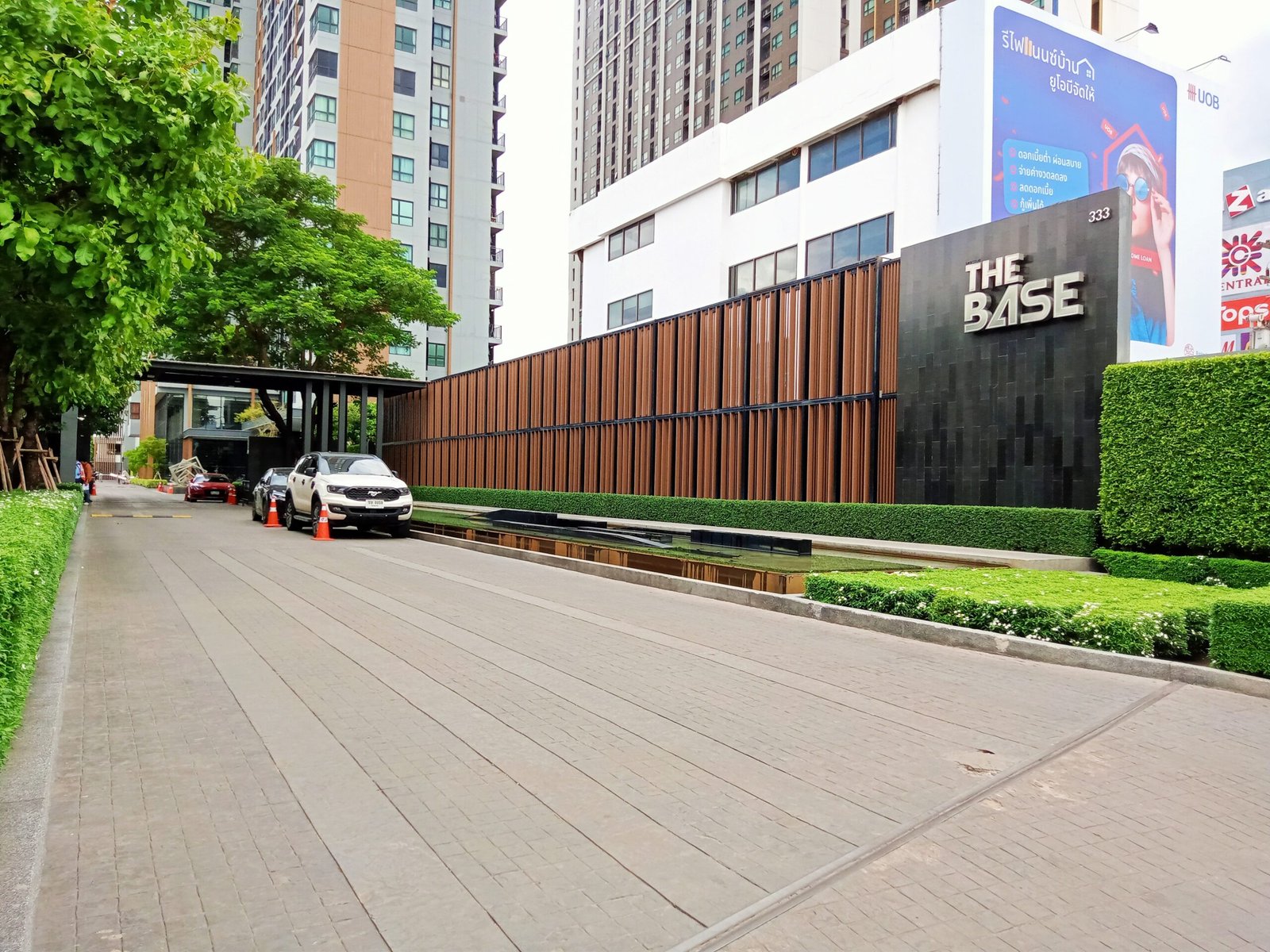Introduction to Thailand’s Real Estate Market
Thailand’s real estate market has experienced substantial growth over the past decade, establishing itself as a dynamic sector within the nation’s economy. Traditionally, the market has been characterized by a mix of residential, commercial, and industrial properties. Major urban areas, particularly Bangkok, have seen significant development, with high-rise condominiums, shopping complexes, and office buildings becoming increasingly prevalent. Additionally, tourist destinations such as Phuket and Pattaya have attracted substantial investments in resort properties and vacation homes.
Key players in Thailand’s real estate market include prominent developers like Sansiri, Pruksa Real Estate, and Land & Houses. These companies have been instrumental in shaping the market, driving innovation, and introducing new property types to meet the evolving demands of both local and international buyers. Despite this progress, the market faced several challenges before the integration of modern technology.
One of the primary issues was transparency. Potential buyers and investors often found it difficult to obtain reliable information about properties, leading to mistrust and hesitancy. Additionally, accessibility was a significant problem, particularly for foreign investors who encountered barriers such as language differences and regulatory complexities. The efficiency of transactions and processes was another area that needed improvement. Traditional methods of property management and sales were often slow and cumbersome, creating frustration for all parties involved.
These challenges hindered the full potential of Thailand’s real estate market. However, the advent of modern technology has begun to address these issues, paving the way for a more transparent, accessible, and efficient market environment. As we delve deeper into how technology is transforming this sector, it is crucial to understand the traditional landscape and the obstacles that once stood in the way of progress.
Technological Innovations Revolutionizing the Market
In recent years, various technological advancements have significantly transformed Thailand’s real estate market, making it more efficient and transparent. One of the most impactful innovations is the advent of property listing platforms. These platforms, such as DDproperty and Hipflat, offer comprehensive databases of available properties. They provide detailed information, including pricing trends, neighborhood statistics, and property comparisons, which empower buyers and sellers to make informed decisions. The convenience of browsing properties online has revolutionized the traditional property search process.
Another groundbreaking technology is virtual reality (VR). VR allows prospective buyers to take immersive property tours from the comfort of their homes. Companies like PropVR have introduced VR property tours that enable users to explore every nook and cranny of a property without physically being there. This technology not only saves time and travel expenses but also provides a more engaging and realistic experience compared to static images or videos. It has become particularly valuable during the COVID-19 pandemic, as it minimizes the need for in-person visits.
Blockchain technology is also making waves in the Thai real estate market by enhancing the security and transparency of transactions. Blockchain ensures that all transactions are recorded in an immutable digital ledger, reducing the risk of fraud and discrepancies. Companies such as BitOfProperty and Propy are leveraging blockchain to facilitate secure property transactions, making the process faster and more reliable. This technology is particularly beneficial in property dealings, where trust and authenticity are paramount.
Artificial intelligence (AI) is another key player in transforming the real estate landscape. AI-powered data analytics tools are being used to predict market trends, assess property values, and identify investment opportunities. Platforms like Baania utilize AI to analyze vast amounts of data, providing insights that help investors and developers make strategic decisions. AI algorithms can evaluate factors such as location, amenities, and historical price trends to offer accurate property valuations and market forecasts.
In summary, these technological innovations are revolutionizing Thailand’s real estate market, making it more efficient, transparent, and accessible. Property listing platforms, virtual reality, blockchain, and artificial intelligence are each playing a crucial role in driving this transformation, ultimately benefiting all stakeholders in the market.
Benefits and Challenges of Technology Adoption
Adopting technology in Thailand’s real estate market has ushered in numerous benefits. Foremost among these is increased transparency. Digital platforms and blockchain technology have facilitated more transparent transactions, reducing the potential for fraud and corruption. Buyers and sellers now have access to reliable data about property histories, ownership, and pricing trends, which builds trust and encourages more informed decision-making.
Another significant advantage is better consumer access to information. Online real estate portals and mobile applications allow potential buyers to view a plethora of property listings, complete with detailed descriptions, high-resolution images, and virtual tours. This increased access empowers consumers to compare options easily, making the home-buying process more efficient and less time-consuming.
Technological advancements have also accelerated transaction times. Electronic signatures, online payment systems, and automated contract processing reduce the need for physical meetings and paperwork, streamlining the entire transaction process. This not only speeds up property deals but also makes them more convenient for all parties involved.
Enhanced marketing capabilities represent another crucial benefit. Real estate agents and developers can leverage social media, search engine optimization, and targeted online advertising to reach a broader audience. Virtual reality and augmented reality tools offer immersive experiences, allowing potential buyers to explore properties remotely. Consequently, marketing strategies have become more dynamic and far-reaching.
However, the adoption of technology in Thailand’s real estate market is not without challenges. One significant barrier is the digital divide. While urban areas enjoy robust internet connectivity and access to advanced technologies, rural regions lag, limiting the benefits of digital transformation to a subset of the population.
Cybersecurity concerns also pose a considerable challenge. The increasing reliance on digital platforms exposes the market to risks such as data breaches, hacking, and cyber fraud. Ensuring robust cybersecurity measures is essential to safeguarding sensitive information and maintaining consumer confidence.
Resistance from traditional market players is another obstacle. Established real estate professionals and agencies may be hesitant to embrace new technologies, fearing disruption to their conventional business models. This resistance can slow the pace of technological adoption and hinder the market’s overall progress.
In balancing these benefits and challenges, it is clear that technology has the potential to significantly transform Thailand’s real estate market. However, addressing the digital divide, enhancing cybersecurity, and encouraging traditional players to adapt are critical steps toward maximizing the positive impacts of this transformation.
Future Trends and Predictions
The landscape of Thailand’s real estate market is poised for significant changes as technological advancements continue to reshape the industry. One of the most anticipated trends is the further integration of smart home technologies. As more developers and homeowners adopt these innovations, properties equipped with smart systems for energy management, security, and convenience will become increasingly common. This shift is expected to enhance the appeal and value of residential and commercial properties alike.
Big data is another transformative force set to revolutionize market analysis within the real estate sector. By leveraging vast amounts of data, real estate professionals can gain deeper insights into market trends, consumer preferences, and investment opportunities. Predictive analytics can help stakeholders make more informed decisions, from property valuations to strategic investments. The ability to analyze and interpret data effectively will be a critical skill for real estate professionals moving forward.
Emerging technologies such as 5G and the Internet of Things (IoT) are also expected to have a profound impact on Thailand’s real estate market. The rollout of 5G networks will enable faster and more reliable connectivity, facilitating the adoption of IoT devices that enhance property management and tenant experiences. For instance, smart sensors can monitor building systems in real-time, ensuring optimal performance and reducing maintenance costs. Additionally, the integration of IoT can provide valuable data on how spaces are used, informing future design and development projects.
Expert opinions and market studies suggest that these technological trends will not only improve the efficiency and functionality of real estate operations but also create new opportunities for growth and innovation. As Thailand continues to embrace technological advancements, the real estate market is likely to see continuous transformation, driven by a commitment to leveraging technology for enhanced performance and sustainability. The future of Thailand’s real estate market looks promising, with technology playing a central role in shaping its evolution.












